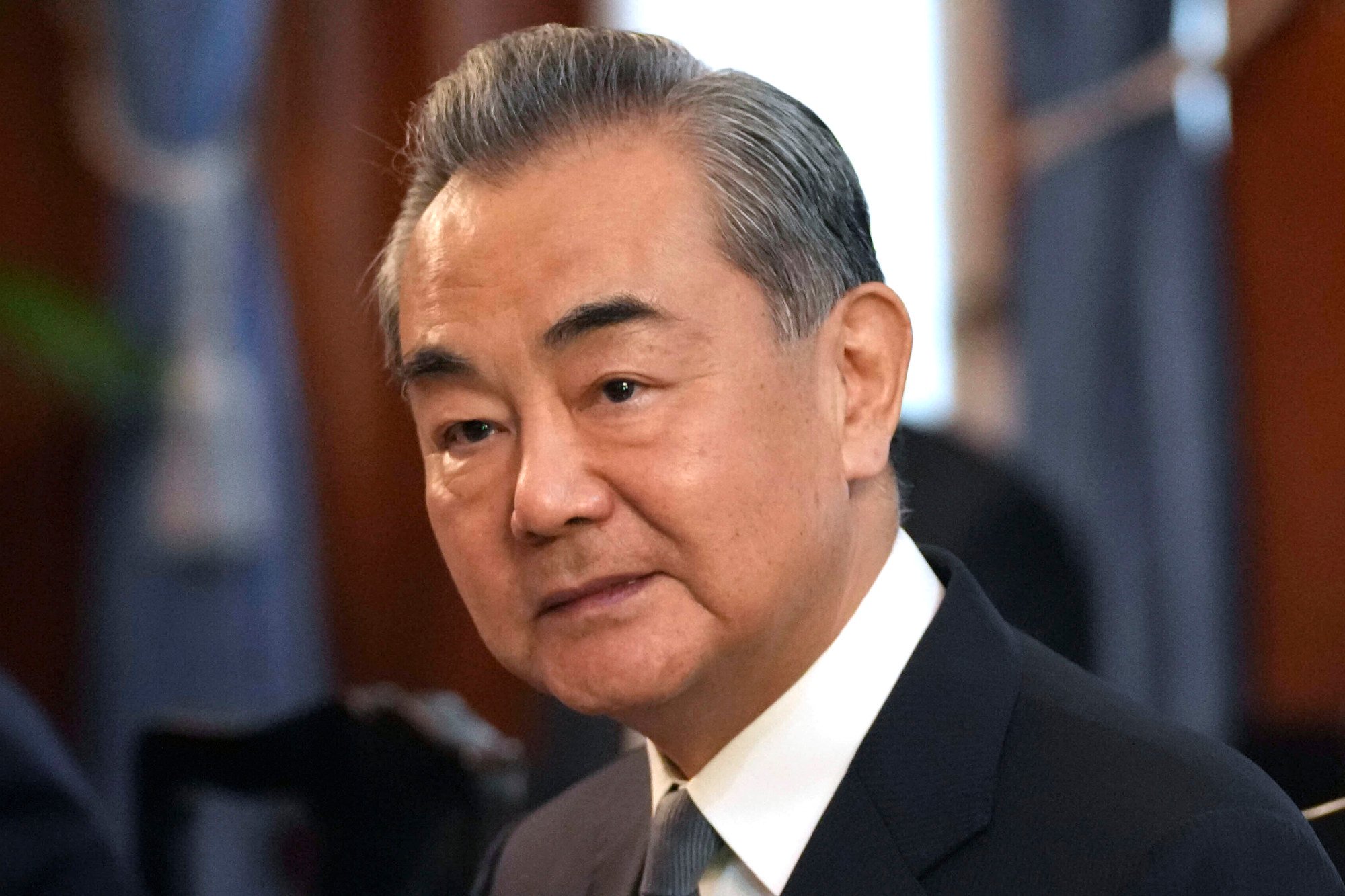
White House adviser Jake Sullivan holds ‘candid’ talks with top Chinese diplomat Wang Yi
- Two days of talks in Malta mark a continuation of recent high-level bilateral engagement
- Biden official mentions ‘limited indications’ that Beijing is considering resumption of military-to-military dialogue
US National Security Adviser Jake Sullivan held “candid” talks on Taiwan and the Russian war in Ukraine with Chinese Foreign Minister Wang Yi for two days, according to announcements from Washington and Beijing on Sunday, the second such meeting in four months.
In separate readouts, both sides called the two days of talks in Malta on Saturday and Sunday “candid, substantive and constructive” and said the two officials committed to further high-level dialogue, but did not say when the next round would be or who would lead them.
Sullivan brought up “our concerns with the PRC’s provision of different types of assistance to Russia”, a senior official with US President Joe Biden’s administration told reporters in a background briefing after the readout was issued. She said, however, that US officials “have not seen to date any lethal assistance”.
“There are a number of recent developments that we share our perspectives on, including . . . the upgrading of the US-Vietnam relationship,” the official added. “We also raised concerns about Chinese actions in the South China Sea.”
“The two sides also discussed additional high level engagements . . . including upcoming meetings between senior officials,” the official said, without confirming whether these would include a meeting between Biden and Chinese President Xi Jinping at the Apec leaders’ summit in San Francisco in November.
“The two sides committed to consultation in two areas, specifically on political and security developments in the Asia-Pacific, as well as maritime and arms control issues and a policy planning consultation,” she said.
Beijing’s announcement, which called for “strategic communication focusing on stabilizing and improving Sino-US relations” stressed differences over Taiwan.

“Wang Yi emphasized that the Taiwan issue is the first insurmountable red line in Sino-US relations,” Wang’s department said. “The United States must abide by the three Sino-US joint communiqués and implement its commitment not to support ‘Taiwan independence’”.
“China’s development has strong endogenous driving force and follows inevitable historical logic. It cannot be stopped,” it continued. “The Chinese people’s legitimate right to development cannot be deprived.”
No further details were provided about what conclusions the two sides drew on the subjects covered.
Biden holds highest-level talks with China’s leaders in months
A continuation of high-level, bilateral engagement that resumed after a deep freeze earlier this year, the latest round of talks follows recent trips by four other top officials in US President Joe Biden’s administration: Secretary of State Antony Blinken, Treasury Secretary Janet Yellen, Commerce Secretary Gina Raimondo and John Kerry, Biden’s top envoy on climate.
Tension around Taiwan and assurances by US officials that Washington is not trying to decouple from China economically or contain the country’s influence, have topped the agendas for all of these meetings.
Yet both sides have made recent moves that the other sees as upsetting the status quo in the Taiwan Strait.
Sullivan “expressed concern about . . . coercion, including the recent crossings of the center line [between Taiwan and mainland China in the Taiwan Strait] and other military activity around the island [that is] unhelpful in the current context, and that we expect . . . differences to be resolved through peaceful means”, the Biden official said.
Like most other Western countries, the US does not recognise Taiwan as an independent country, although Washington is committed by its Taiwan Relations Act to support the self-ruled island’s defence capability.
US officials have reiterated that the activities by Beijing’s military in the Taiwan Strait increases the urgency for a resumption in military-to-military dialogue, which has largely been severed since then-House speaker Nancy Pelosi visited Taipei last year.
The Biden official on Sunday’s call said that “there have been some small or limited indications that they may be interested [in resuming some military-to-military dialogue], but again, I think this is a gradual process”.
On the US side, Congress and the Biden administration have been pushing measures to strengthen economic ties with Taiwan.
US Senate committee passes bill to cut taxes on Taiwanese firms operating in US
With Wang scheduled to visit Moscow for talks with Russian Foreign Minister Sergey Lavrov this week, and Chinese President Xi Jinping skipping the United Nations General Assembly in New York this week, no high-level US-China engagement will take place at the annual event.
Asked whether Wang’s plan to visit Moscow was behind the timing of the meetings in Malta, the Biden administration official dismissed any connection between the two.
“We’ve tried to use this channel about once a quarter,” she said. “Every couple of months is a good chance to dive deep into [the outstanding issues] that we’re facing on the US-China relationship.”

